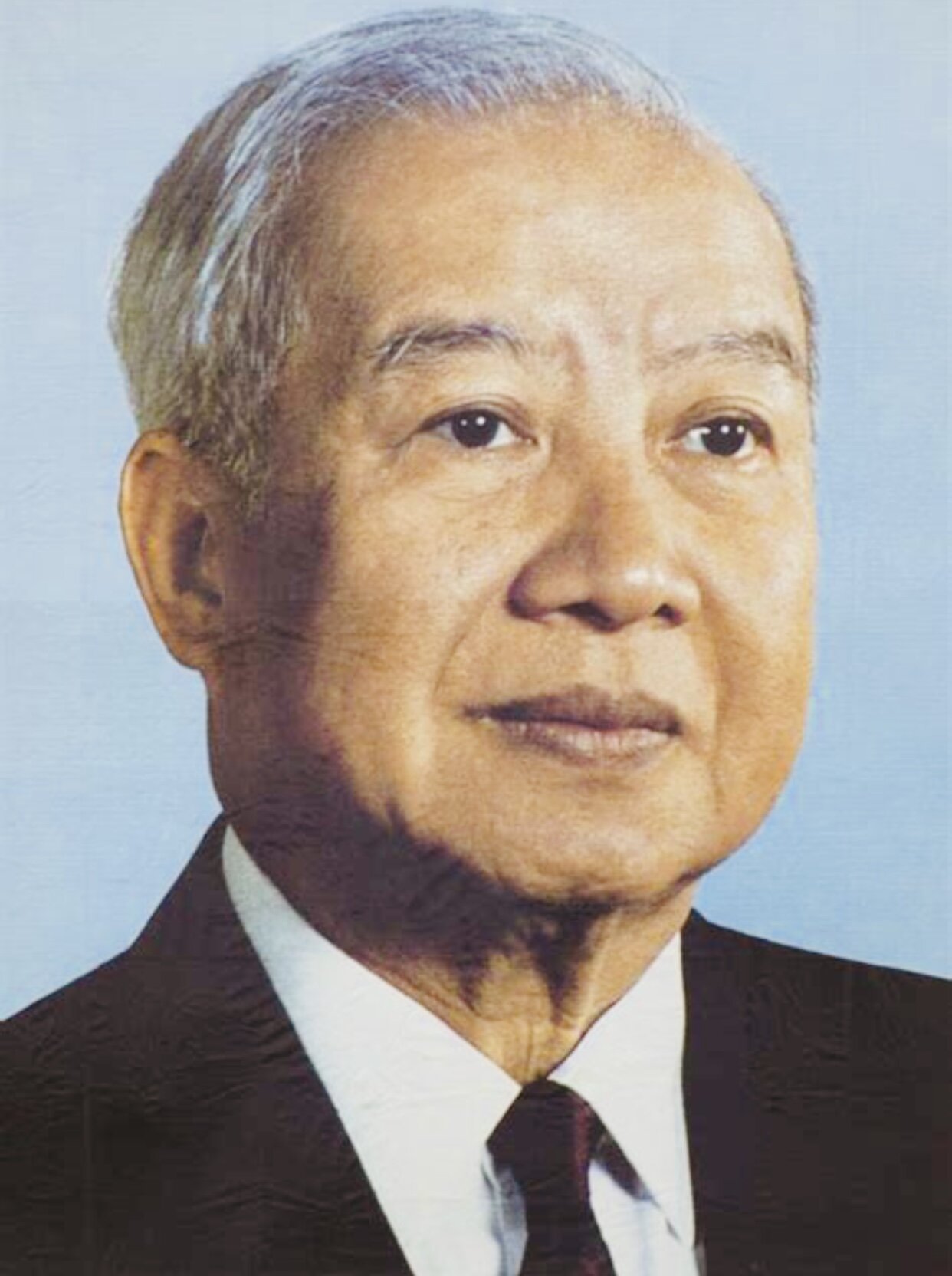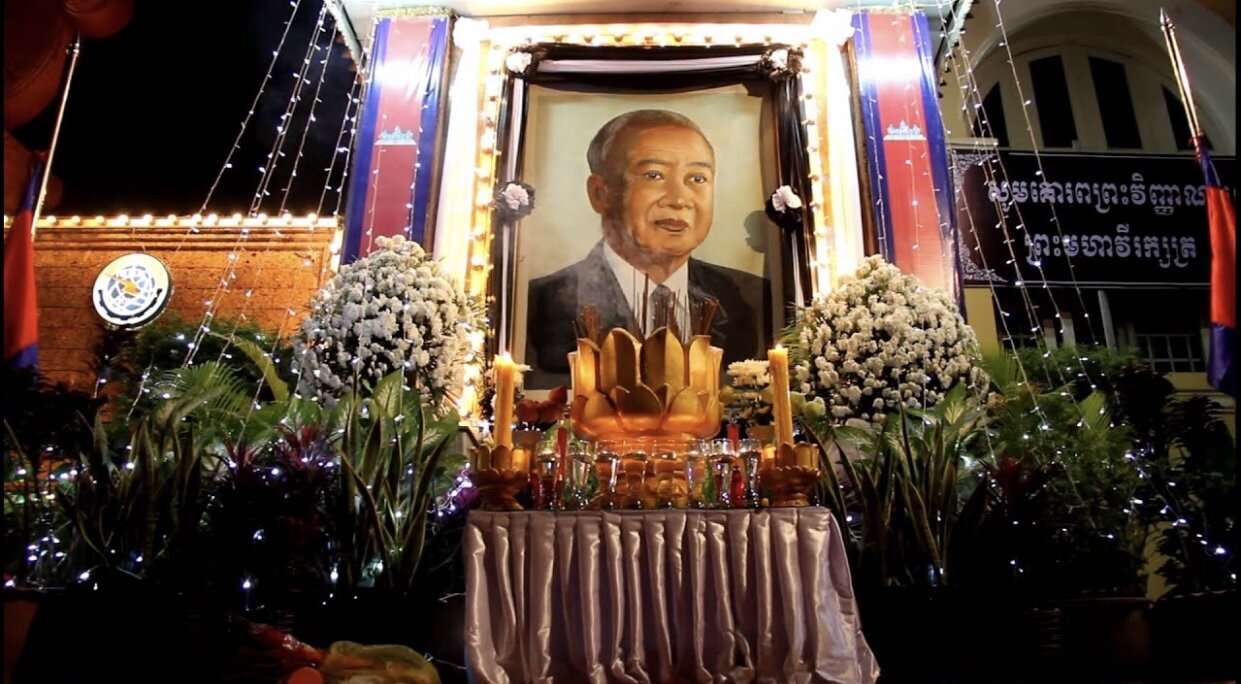Now Americans are hated all over the world and we live in shame because we haven’t been able yet to throw off the group which has seized authority here. Was this the “plan” all along? A lot of my motivation is to express to the rest of the world that most of us Americans have been hijacked as well. Our country is being deliberately destroyed too. We are very sad and angry about all of this criminal exploitation and the sabotage of the world’s agriculture, manufacture and economy.
It only got better. On 22 April 1970, Haldeman reports that Nixon, following Kissinger into a National Security Council meeting on Cambodia, "turned back to me with a big smile and said 'K[issinger]'s really having fun today, he's playing Bismarck.'"
The above is an insult to the Iron Chancellor. When Kissinger was finally exposed in Congress and the press for conducting unauthorized bombings, he weakly pleaded that the raids were not all that secret, really, because Prince Sihanouk of Cambodia had known of them.
Prince Sihanouk
He had to be reminded that a foreign princeling cannot give permission to an American bureaucrat to violate the United States Constitution. Nor, for the matter of that, can he give permission to an American bureaucrat to slaughter large numbers of his "own" civilians.
The system runs on traitors who sell out their own people.
It's difficult to imagine Bismarck cowering behind such a contemptible excuse. (Prince Sihanouk, it is worth remembering, later became an abject puppet of the Khmer Rouge.)
Colonel Sitton began to notice that by late 1969 his own office was being regularly overruled in the matter of selecting targets. "Not only was Henry carefully screening the raids," said Sitton, “he was reading the raw intelligence" and fiddling with the mission patterns and bombing runs. In other departments of Washington insiderdom, it was also noticed that Kissinger was becoming a Stakhanovite committeeman.
Stakhanovite movement - The term Stakhanovite originated in the Soviet Union and referred to workers who modeled themselves after Alexey Stakhanov. These workers took pride in their ability to produce more than was required, by working harder and more efficiently, thus strengthening the socialist state.
Aside from the crucial Forty Committee, which planned and oversaw all foreign covert actions, he chaired the Washington Special Action Group (WSAG), the Verification Panel, which was concerned with arms control, the Viet-nam Special Studies Group, which oversaw the day-to-day conduct of the war, and the Defense Program Review Committee, which supervised the budget of the Defense Department.
It is therefore impossible for him to claim that he was unaware of the consequences of the bombings of Cambodia and Laos; he knew more about them, and in more intimate detail, than any other individual. Nor was he imprisoned in a culture of obedience that gave him no alternative, or no rival arguments.
Several senior members of his own staff, most notably Anthony Lake and Roger Morris, resigned over the invasion of Cambodia, and more than two hundred State Department employees signed a protest addressed to Secretary of State William Rogers.
Indeed, as has been noted, both Rogers and Secretary of Defense Melvin Laird were opposed to the B-52 bombing policy, as Kissinger himself records with some disgust in his own memoirs.
Congress was also opposed to an extension of the bombing (once it had agreed to become informed of it) but, even after the Nixon-Kissinger administration had undertaken on Capitol Hill not to intensify the raids, there was a 21 percent increase of the bombing of Cambodia in the months of the July-August 1973.
The Air Force targeted areas show them to be, or to have been, densely populated. maps Colonel Sitton does recall, it must be admitted, that Kissinger requested that bombing avoid civilian casualties.
His explicit motive in making this request was to avoid or forestall complaints from the government of Prince Sihanouk. But this does no more in itself than demonstrate that Kissinger was aware of the possibility of civilian deaths. If he knew enough to know of their likelihood, and was director of the policy that inflicted them, and neither enforced any actual precautions nor reprimanded any violators, then the case against him is legally and morally complete.
As early as the fall of 1970, an independent investigator named Fred Branfman, who spoke Lao and knew the country as a civilian volunteer, had gone to Bangkok and interviewed Jerome Brown, a former targeting officer for the United States embassy in the Laotian capital of Vientiane.
Fred Branfman
The man had retired from the Air Force because of his disillusionment at the futility of the bombing and his consternation at the damage done to civilians and society.
The speed and height of the planes, he said, meant that targets were virtually indistinguishable from the air. Pilots would often decide to drop bombs where craters already existed, and chose villages as targets because they could be more readily identified than alleged Pathet Lao guerrillas hiding in the jungle.
This group hijacks a nation’s police and military through bribery, blackmail, seduction and intimidation - then they use that force to terrify the populace into submission.
Over and over and over.
Branfman, whom I interviewed in San Francisco in the summer of 2000, went on to provide this and other information to Henry Kamm and Sydney Schanberg of the New York Times, to Ted Koppel of ABC, and to many others.
The link is here.
He also wrote up and published his findings in Harper's magazine, where they were not controverted by any authority. Under pressure from the US embassy, the Laotian authorities had Branfman deported back to the United States, which was probably, from their point of view, a mistake.
There is so much mind control to keep the main people who populate the police and military from understanding the role they are playing in the betrayal of humanity.
He was able to make a dramatic appearance on Capitol Hill on 22 April 1971, at a hearing held by Senator Edward Kennedy's Senate Subcommittee on Refugees.
His antagonist was the State Department's envoy William Sullivan, a former ambassador to Laos. Branfman accused him in front of the cameras of helping to conceal evidence that Laotian society was being mutilated by ferocious aerial bombardment.
Partly as a consequence, Congressman Pete McCloskey of California (a much-decorated veteran of the war in Korea) paid a visit to Laos and acquired a copy of an internal US embassy study of the bombing.
Pete McCloskey
He also prevailed on the US Air Force to furnish him with aerial photographs of the dramatic damage. Ambassador Sullivan was so disturbed by these pictures, some of them taken in areas known to him, that his first reaction was to establish to his own satisfaction that the raids had occurred after he left his post in Vientiane.
(He was later to learn that, for his pains, his own telephone was being tapped at Henry Kissinger's instigation, one of the many such violations of American law that were to eventuate in the Watergate tapping-and-burglary scandal: a scandal that Kissinger was furthermore to plead-in an astounding outburst of vanity, deceit and self-deceit-as his own alibi for inattention in the Cyprus crisis.)


















